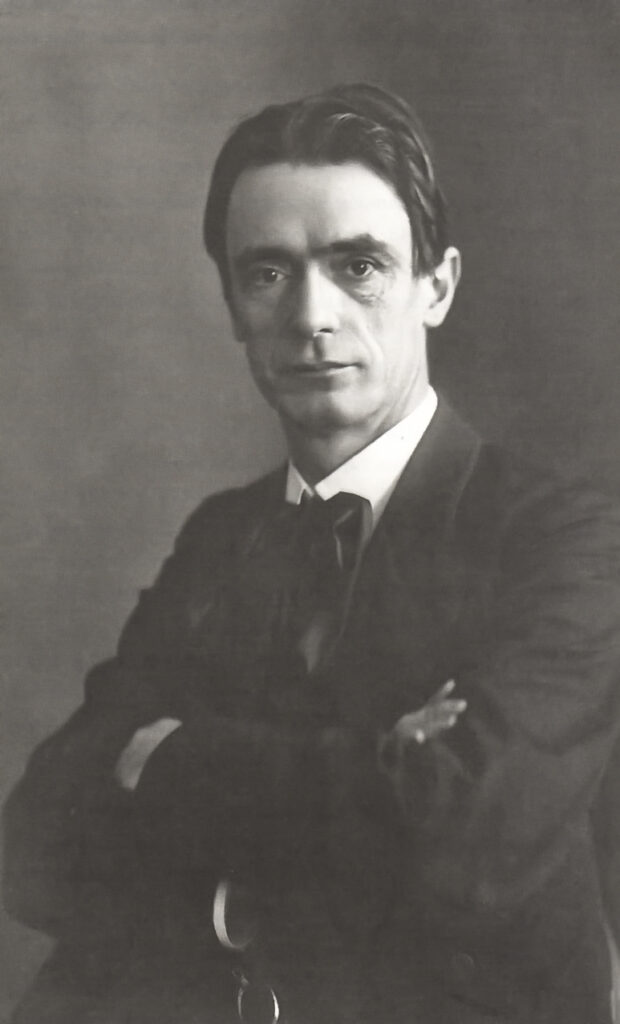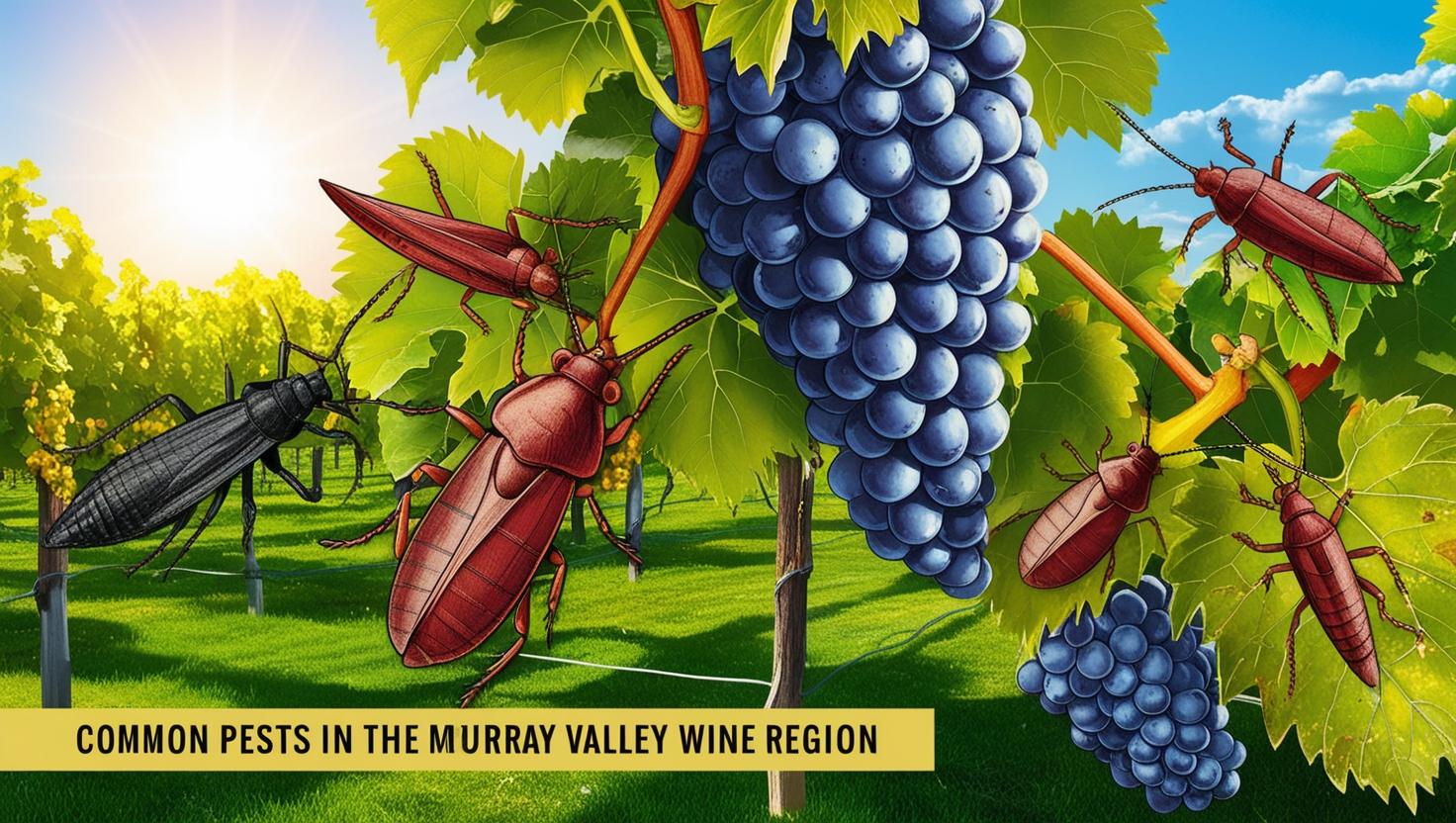The power of the cow’s horn is a central tenet of the theory of biodynamic agriculture founded by the Croatian born Rudolf Steiner. The foundation of his theories is described thus on Wikipedia:
“In 1924, a group of farmers concerned about the future of agriculture requested Steiner’s help. Steiner responded with a lecture series on an ecological and sustainable approach to agriculture that increased soil fertility without the use of chemical fertilisers and pesticides. Steiner’s agricultural ideas promptly spread and were put into practice internationally and biodynamic agriculture is now practiced in Europe, North America, South America, Africa, Asia and Australasia.”

The importance of the horns of cows was described by Steiner in his Lecture Four 12 June 1924 on Agriculture.
We take manure, such as we have available. We stuff it into the horn of a cow, and bury the horn a certain depth into the earth — say about 18 in. to 2 ft. 6 in., provided the soil below is not too clayey or too sandy. (We can choose a good soil for the purpose. It should not be too sandy). You see, by burying the horn with its filling of manure, we preserve in the horn the forces it was accustomed to exert within the cow itself, namely the property of raying back whatever is life-giving and astral. Through the fact that it is outwardly surrounded by the earth, all the radiations that tend to etherealise and astralise are poured into the inner hollow of the horn. And the manure inside the horn is inwardly quickened with these forces, which thus gather up and attract from the surrounding earth all that is ethereal and life-giving.
And so, throughout the winter — in the season when the Earth is most alive — the entire content of the horn becomes inwardly alive. For the Earth is most inwardly alive in winter-time. All that is living is stored up in this manure. Thus in the content of the horn we get a highly concentrated, life-giving manuring force. Thereafter we can dig out the horn. We take out the manure it contains.
During our recent tests (in Dornach), as our friends discovered for themselves, when we took out the manure it no longer smelt at all. This was a very striking fast. It had no longer any smell, though naturally it began to smell a little when treated once more with water. This shows that all the odoriferous principles are concentrated and assimilated in it. Indeed it contains an immense ethereal and astral force; and of this you can now make use. When it has spent the winter in the earth, you take the stuff out of the horn and dilute it with ordinary water — only the water should perhaps be slightly warmed.
To give an impression of the quantitative aspect: I always found, having first looked at the area to be manured, that a surface, say, about as big as the patch from the third window here to the first foot-path, about 1,200 square metres (between a quarter- and third-acre) is adequately provided for if we use one hornful of this manure, diluted with about half a pailful of water. You must, however, thoroughly combine the entire content of the horn with the water. That is to say, you must set to work and stir. Stir quickly, at the very edge of the pail, so that a crater is formed reaching very nearly to the bottom of the pail, and the entire contents are rapidly rotating. Then quickly reverse the direction, so that it now seethes round in the opposite direction.
Do this for an hour and you will get a thorough penetration. Think, how little work it involves. The burden of work will really not be very great. Moreover, I can well image that — at any rate in the early stages — the otherwise idle members of a farming household will take pleasure in stirring the manure in this way. Get the sons and daughters of the house to do it and it will no doubt be wonderfully done.
It is a very pleasant feeling to discover how there arises after all, from what was altogether scentless to begin with, a rather delicately sustained aroma. This personal relationship to the matter (and you can well develop it) is extraordinarily beneficial — at any rate for one who likes to see Nature as a whole and not only as in the Baedeker guide-books.
Our next task will be to spray it over the tilled land so as to unite it with the earthly realm. For small surfaces you can do it with an ordinary syringe; it goes without saying, for larger surfaces you will have to devise special machines. But if you once resolve to combine your ordinary manuring with this kind of “spiritual manure,” if I may call it so, you will soon see how great a fertility can result from such measures. Above all, you will see how well they lend themselves to further development. For the method I have just described can be followed up at once by another, namely the following.
Once more you take the horns of cows. This time, however, you fill them not with manure but with quartz or silica or even orthorclase or feldspar, ground to a fine mealy powder, of which you make a mush, say of the consistency of a very thin dough. With this you fill the horn. And now, instead of letting it “hibernate,” you let the horn spend the summer in the earth and in the late autumn dig it out and keep its contents till the following spring.
So you dig out what has been exposed to the summery life within the earth, and now you treat it in a similar way. Only in this case you need far smaller quantities. You can take a fragment the size of a pea, or maybe only the size of a pin’s head, and distribute it by stirring it up well in a bucket of water. Here again, you will have to stir it for an hour, and you can now use it to sprinkle the plants externally. It will prove most beneficial with vegetables and the like.
I do not mean that you should water them with it in a crude way; you spray the plants with it, and you will presently see how well this supplements the influence which is coming from the other side, out of the earth itself, by virtue of the cow-horn manure. And now, suppose you extend this treatment to the fields on a large scale. After all, there is no great difficulty in doing so. Why should it not be possible to make machines, able to extend over whole fields the slight sprinkling that is required? If you do this, you will soon see how the dung from the cow-horn drives from below upward, while the other draws from above — neither too feebly, nor too intensely. It will have a wonderful effect, notably in the case of cereals.
See: The Steiner infuence on the government body Wine Australia





